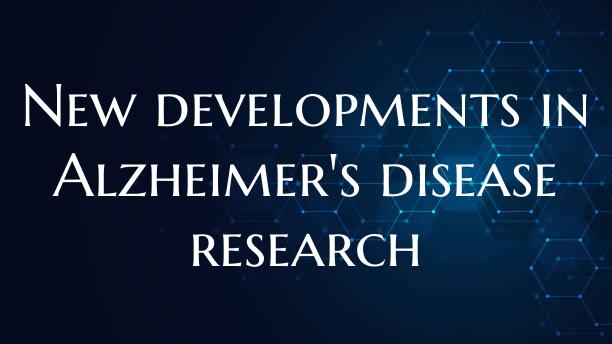
New developments in Alzheimer's disease research
Alzheimer's disease, a progressive neurodegenerative disorder that affects memory, thinking, and behavior, has long been a significant area of research focus in the medical field. Recent years have seen groundbreaking advancements in understanding the mechanisms behind the disease, leading to new approaches to diagnosis, treatment, and prevention. Here are some of the latest developments in Alzheimer's disease research:
1. Early Detection Methods: One of the key challenges in Alzheimer's disease is diagnosing it in its early stages when interventions can be most effective. Researchers have made strides in developing biomarkers and imaging techniques that can detect signs of Alzheimer's before symptoms appear, allowing for early intervention and treatment.
2. Targeted Therapies: Traditional Alzheimer's treatments have focused on managing symptoms rather than addressing the underlying disease process. Recent research has identified specific molecular targets, such as beta-amyloid and tau proteins, that play a role in the development of Alzheimer's. New therapies targeting these pathways are being developed and tested in clinical trials.
3. Precision Medicine: Alzheimer's disease is a complex condition with diverse underlying causes and risk factors. Researchers are increasingly exploring the concept of precision medicine, which aims to tailor treatment approaches to individual patients based on their unique genetic and environmental factors. This personalized approach holds promise for improving treatment outcomes and reducing side effects.
4. Lifestyle Interventions: Growing evidence suggests that lifestyle factors, such as diet, exercise, and cognitive engagement, may play a role in reducing the risk of developing Alzheimer's disease. Researchers are studying the impact of interventions such as the Mediterranean diet, physical activity, and cognitive training on brain health and cognitive function in both healthy individuals and those with Alzheimer's.
5. Collaborative Research Efforts: Recognizing the complexity of Alzheimer's disease and the need for a multidisciplinary approach, researchers around the world are collaborating on large-scale initiatives to accelerate progress in understanding the disease. Initiatives such as the Global Alzheimer's Platform and the Alzheimer's Disease Neuroimaging Initiative bring together scientists, clinicians, and patients to share data, resources, and expertise.
These new developments in Alzheimer's disease research offer hope for the millions of individuals and families affected by this devastating condition. While there is still much to learn, the progress being made in understanding the underlying mechanisms of the disease and developing novel treatments and interventions is a testament to the dedication and innovation of the scientific community. Through continued research and collaboration, the path towards effective prevention and treatment of Alzheimer's disease is becoming clearer.